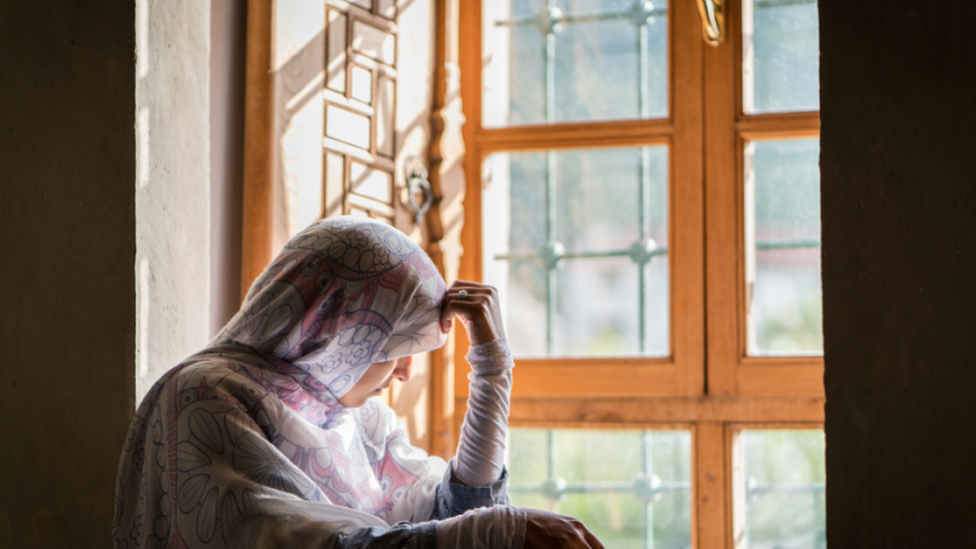Trauma: NI teachers taught to spot children's fears
- Published
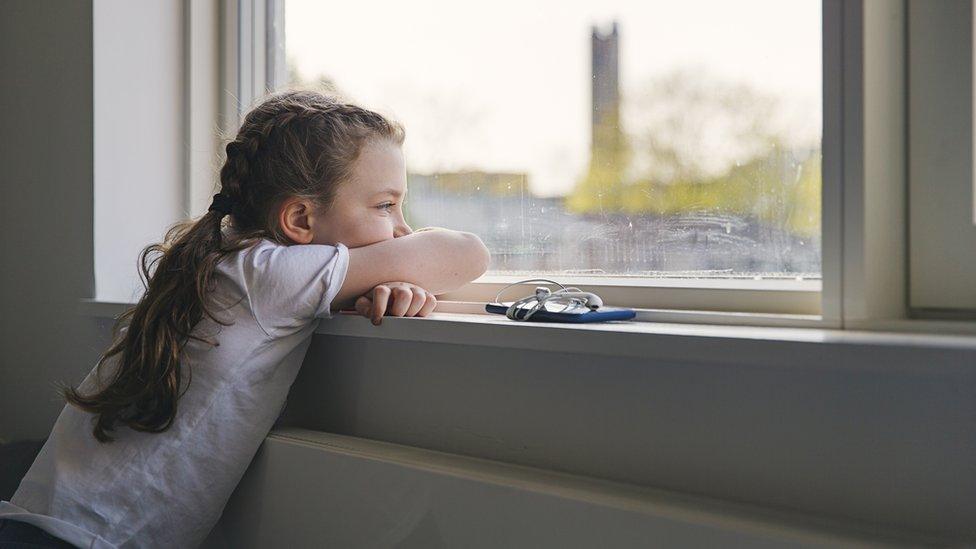
The education minister said she wanted to ensure the best support for children and young people
An educational training programme to help raise awareness of the effect of trauma on children has been launched in Northern Ireland.
The training will give 60,000 education staff the opportunity to improve their understanding of trauma.
Education Minister Michelle McIlveen said she was confident the "thought provoking" training would help children achieve their full potential.
There has been a mixed reaction among principals.
Ms McIlveen said she wanted to ensure the best support for children and young people.
"Adverse childhood experiences can come in many forms and may result in a multitude of impacts which can make positive engagement with education a huge challenge for some children," she said.
The training was developed by the Safeguarding Board for Northern Ireland (SBNI) and will be made available by the Education Authority.

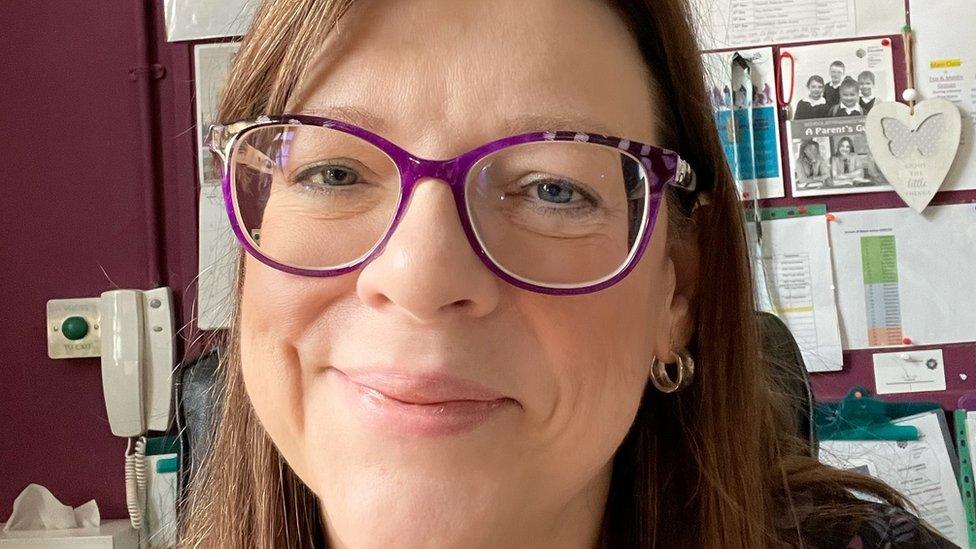
Hilary Cunningham says she absolutely welcomes the trauma training
'Dire need'
The principal of one of Northern Ireland's most diverse schools said there was a "dire need" for trauma training.
Hilary Cunningham is principal of Fane Street Primary School in Belfast, which has a newcomer population of 85%.
Twenty per cent of the school's pupils are refugee and asylum seekers, and 20% are from the Roma community.
Mrs Cunningham said she "absolutely welcomed" the launch of the training programme after her school took part in its pilot scheme.
"There is a lot of need and poverty and with that comes trauma," she said.
"We have a lot of food poverty and families living in bed and breakfast accommodation. A lot of these families have had to flee from their own countries and war.
"You cannot educate a child who does not have their basic needs met.
"We are in a position where we know what people are up against. We are in dire need."
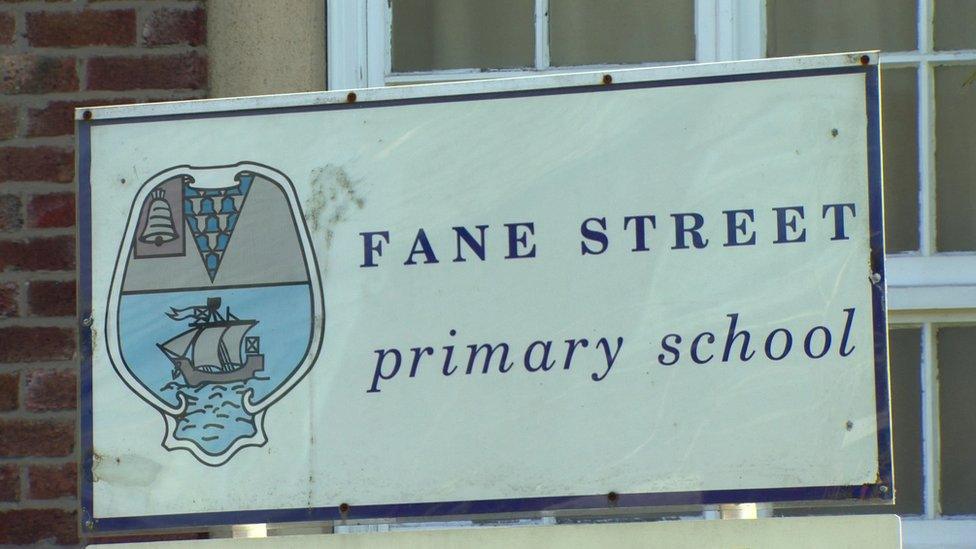
Fane Street Primary School is considered one of Northern Ireland's most diverse schools

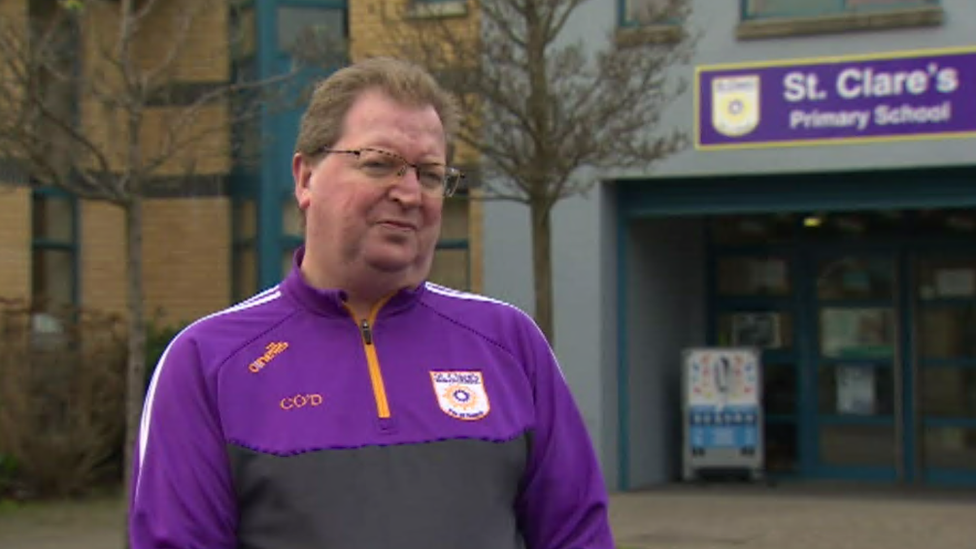
St Clare's Primary School principal Cathal O'Doherty says his school had already engaged in trauma training due to the pandemic
'Measurable rise in trauma'
The principal of a west Belfast primary school said his staff had already undertaken trauma training due to the effect of the Covid-19 pandemic.
St Clare's Primary School is located in an area of social deprivation with 70% of pupils receiving free school meals.
School principal Cathal O'Doherty said the rise in trauma during the pandemic had been "absolutely measurable" for his challenged but "safe, loving and happy" school.
He said the school had provided strategies to deal with stress, wellbeing and trauma after the summer break.
"There was an awful lot of bereavement and illness in the community and it was important to address that upfront," he said.
"We were dealing with people who had lost relatives and had not been able to have wakes, people who had not been given the chance to grieve.
"We knew at some stage we were going to meet a crisis of mental health and it came to pass."
Mr O'Doherty said the trauma training had been vital to let staff explore the effect of the trauma on them before looking for its signs in the children.
"In our experience, domestic violence and social breakdown have become aggravated by Covid," he said.
"More and more children presented during the pandemic with signs of trauma.
"There were real attachment issues because children had been at home with their parents for so long during lockdown. Returning to school really was traumatic for some of them."

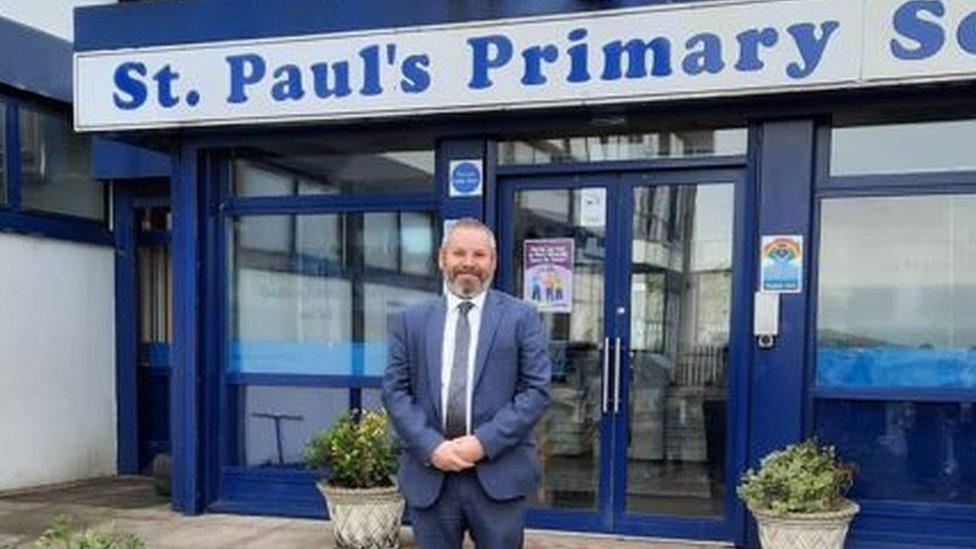
Sean McNamee believes Covid has brought trauma out into the open
'Stress and emotional wear'
Trauma training is needed in schools but could add to the growing burden on teachers, the principal of St Paul's Primary School, Beechmount, has said,
St Paul's Primary is in an area of high deprivation in Belfast with 78% of children entitled to free school meals and 32% of pupils from refugee and asylum families.
Sean McNamee said he believed the pandemic had brought trauma "more to the fore".
"There are certainly more difficulties since Covid, we are seeing that at the school gates," he said.
With more families also falling into the "working poor category", he said children were showing signs of "stress and emotional wear".
"I think the training is a fantastic idea in principle, and should have been rolled out a long time ago," he said.
"We would love to engage in this training but the difficulty is that the demand is such on our time and staff that it is difficult to find time and staff cover to get that time."

Related topics
- Published17 August 2019
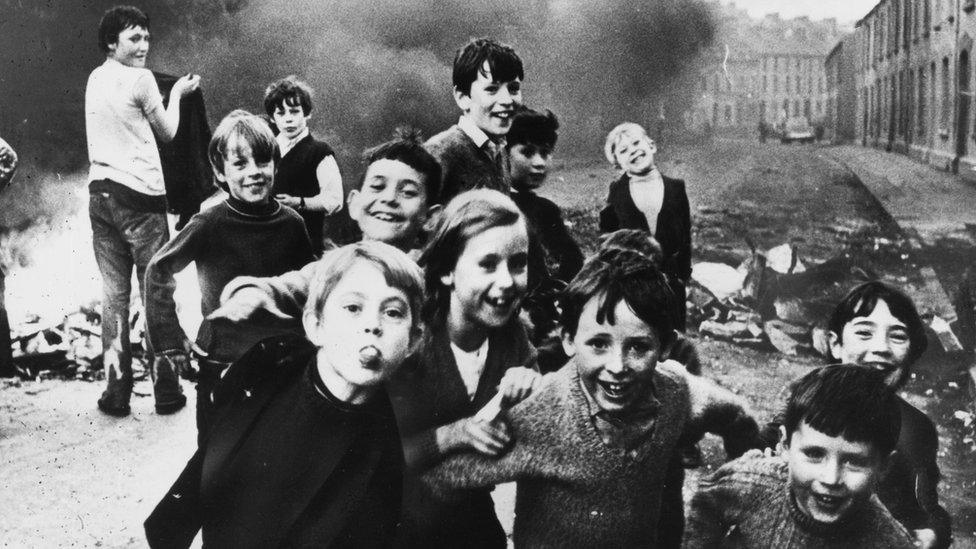
- Published8 September 2021
